Seminar Blogs
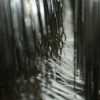
“A contextualization of interdisciplinarity” – Gido Broers
What is context? Since context is a concept that can be applied to many domains and functions as a base for interdisciplinary research (and practice), it is relevant to start here with a brief description of this concept, as described by Kaiyu Wan: The word “context” is derived from the Latin words con (meaning “together”)…
Read more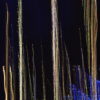
“The open dramaturgy of a digital archive project” – Gido Broers
Eef Masson addressed in her lecture “Experience and Experimentation in the Sensory Moving Image Archive Project” several issues with regards to digital archives, and more specifically in the context of the Sensory Moving Image Archive Project. The aim of this project is “to establish how these groups [artists, the creative industries and researchers] can explore,…
Read more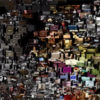
“Reconsidering Digital Moving Image Collections- SEMIA project” – Mavi Irmak Karademirler
The digitization of collections and archives adds a new dimension to the pre-existing materiality of sources; this implies that the research can be done on a much larger scale (Van Dijck 2016). For this reason, the development of tools for research is getting more and more critical. With digitization, the use of the archives has…
Read more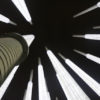
“Sense-ing the Digital Archive” – Dennis Jansen
The archive in digital space, whether born-digital or digitized from an existing collection, presents us with a variety of challenges related to its ontology. The first instinct may be to say that the digital is a deceptively ‘flattening’ medium—while it ostensibly contains all other media, it reduces their materiality to pieces of software displayed on a…
Read more
“The Politics of Categories: Navigating through archives as we navigate through the world” -Jose Hopkins Brocq
Archives, as we know them, are usually associated with academic fascinations as repositories and containers of the past, proving old materiality with an added value of originality and therefore, validity. According to Helen Freshwater, the ways of approaching the archives have changed after their consolidation as an accumulation of documentary evidence in the first decades…
Read more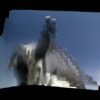
“The SEMIA Revolution: Denaturalizing Our Conceptions of Knowledge and Discovery” – Laura Jimenez Rojas
The metaphors we use to describe our thoughts, practices and projects matter. In this TiM session, Eef Masson presented the Sensory Moving Image Archive -SEMIA-. This is an interdisciplinary project that challenges our traditional conceptions about what a digital archive is and what could it be. Their point of departure is the distinction between searching…
Read more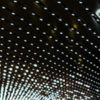
“How can we ever describe the agency and experience of human beings?” – Gido Broers
Arun Saldanha’s lecture, which was called Stratification of cyberspace: from experience to waste, was for me a step outside of my academic comfort zone. In my own research, I focus mainly on theatre and spectatorship which I am exploring through a cognitive neuroscientific lens. This does not mean that Saldanha did not address interesting and…
Read more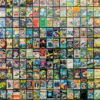
“Personal Experience and the Ignorance of Ecological Matters in Videogame Studies” – Dennis Jansen
When speaking about digital media and cyberspace, we—scholars, critics, users—still tend to forget that even the most ephemeral-seeming media have a material past, present, and future. While this kind of alienation is a problem of all consumption under global capitalism, awareness of the specific histories of digital commodities like videogames strikes me as only a…
Read more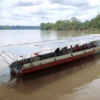
“Solar Canoes to Navigate the Technosphere” – Laura Jimenez Rojas
What is the connection between technology, environment, and race? Are the utopic promises of an inclusive space in the ‘technosphere’[1] impossible to reach? Is it time to question how the stratification of cyberspace leads to an uneven distribution of global scale? Arun Saldanha reflected upon some aspects of these questions. The title of his presentation…
Read more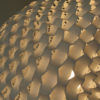
“Searching for a Way Outside the Box” – Mavi Irmak Karademirler
“Geographers talk about maps, distances and all questions related to objective space science, but where does that leave the experience of a place?” (Saldunha, 2019). Drawing on Guattari’s analysis on the computerization and evaluation of the technological evolution, Arun Saldanha started his talk by discussing the experience and globalization in geography. For the market to…
Read more
